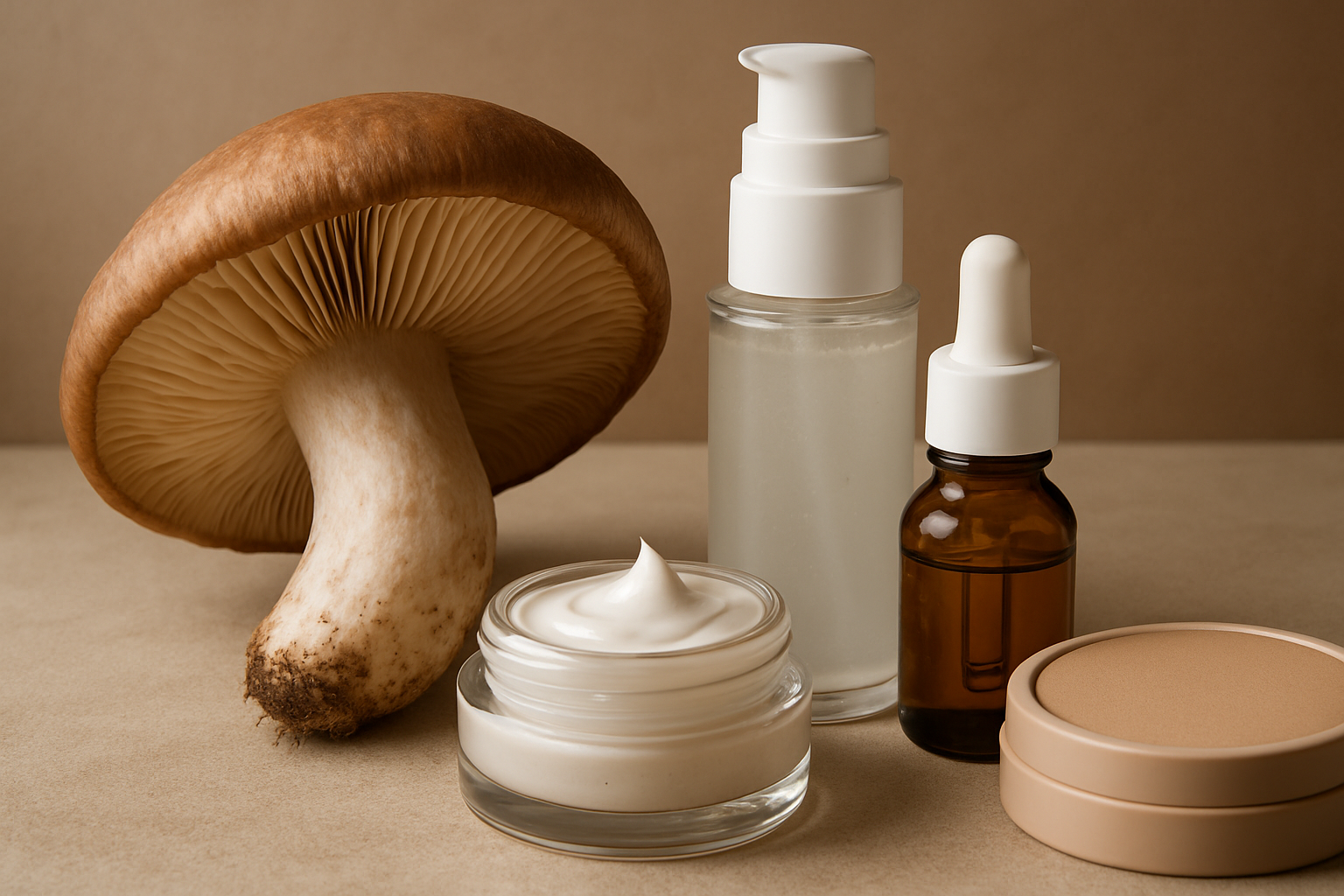Fermented Beauty: The Next Frontier in Skincare
In the ever-evolving world of beauty and skincare, a new trend is bubbling up from an unexpected source: fermentation. This ancient process, long associated with foods like kimchi and kombucha, is now making waves in the skincare industry. Fermented beauty products are emerging as a powerful force, promising to revolutionize our skincare routines with their potent, bioavailable ingredients. As consumers increasingly seek natural, effective solutions for their skin concerns, fermented beauty is poised to become the next big thing in the quest for radiant, healthy skin. But what exactly is fermented skincare, and why is it garnering so much attention from beauty enthusiasts and experts alike?

During fermentation, the molecules of the ingredients are broken down into smaller, more easily absorbed components. This process also creates new beneficial compounds, including probiotics, enzymes, and organic acids. These elements can have a profound impact on skin health, offering benefits such as improved hydration, enhanced barrier function, and increased antioxidant activity.
Moreover, fermentation can increase the potency of active ingredients. For example, studies have shown that fermented ginseng extracts exhibit higher antioxidant and anti-aging properties compared to their non-fermented counterparts. This amplification of benefits makes fermented ingredients particularly attractive for skincare formulations.
Historical Context and Cultural Influences
While fermented beauty may seem like a new trend in the Western world, it has deep roots in Asian skincare traditions, particularly in Korea and Japan. For centuries, these cultures have harnessed the power of fermentation in their beauty rituals, using ingredients like rice water and sake in their skincare routines.
In Korea, the use of fermented ingredients in beauty can be traced back to the Three Kingdoms period (57 BC - 935 AD). Women would use fermented rice water to cleanse and brighten their skin. This practice evolved over time, with fermented ingredients becoming a staple in many traditional beauty recipes.
Japanese skincare has also long embraced fermentation, with sake brewers noticing the soft and youthful hands of workers who handled the fermented rice. This observation led to the development of sake-based skincare products, which are still popular today.
The recent global interest in fermented beauty can be seen as a revival and reimagining of these age-old practices, now backed by modern scientific understanding and advanced formulation techniques.
Key Benefits of Fermented Skincare
Fermented skincare offers a multitude of benefits that address various skin concerns. Here are some of the key advantages:
-
Enhanced absorption: The smaller molecular size of fermented ingredients allows for deeper penetration into the skin, increasing the efficacy of the products.
-
Increased potency: Fermentation can boost the concentration of beneficial compounds, making the ingredients more potent.
-
Probiotic effects: Fermented ingredients can help balance the skin’s microbiome, leading to a healthier, more resilient skin barrier.
-
Gentle exfoliation: Some fermented ingredients produce natural alpha-hydroxy acids (AHAs), which provide gentle exfoliation without harsh scrubbing.
-
Anti-aging properties: Many fermented ingredients are rich in antioxidants, which can help combat free radical damage and signs of aging.
-
Soothing and calming: Fermented skincare products are often well-tolerated by sensitive skin types due to their gentle nature.
Popular Fermented Ingredients in Skincare
The world of fermented skincare is vast and diverse, with a wide array of ingredients being utilized. Some of the most popular fermented ingredients include:
-
Galactomyces ferment filtrate: A by-product of sake fermentation, rich in vitamins, amino acids, and minerals.
-
Bifida ferment lysate: A probiotic ingredient known for its soothing and barrier-strengthening properties.
-
Lactobacillus ferment: Another probiotic that can help balance the skin’s pH and improve its overall health.
-
Fermented green tea: Known for its potent antioxidant properties and ability to combat signs of aging.
-
Fermented rice water: Rich in vitamins and minerals, it’s believed to brighten and soften the skin.
-
Fermented honey: Offers antibacterial properties and intense hydration.
These ingredients are often combined with other active compounds to create powerful, multi-functional skincare products.
Incorporating Fermented Beauty into Your Routine
For those interested in exploring fermented beauty, there are several ways to incorporate these products into an existing skincare routine:
-
Start with a fermented essence: Essences are a staple in Asian skincare routines and are an excellent way to introduce fermented ingredients. They’re typically lightweight and can be used after cleansing and before moisturizing.
-
Try a fermented serum: Serums are concentrated products that can target specific skin concerns. Look for serums containing fermented ingredients that address your particular needs.
-
Experiment with fermented masks: Sheet masks or wash-off masks infused with fermented ingredients can provide an intensive treatment for the skin.
-
Consider a fermented cleanser: Some brands offer cleansers formulated with fermented ingredients, which can gently cleanse while nourishing the skin.
-
Look for multi-functional products: Many fermented skincare products offer multiple benefits, such as hydration, brightening, and anti-aging effects.
When introducing any new product into your skincare routine, it’s essential to patch test first and introduce new items gradually to monitor how your skin responds.
The Future of Fermented Beauty
As research continues to uncover the benefits of fermented ingredients in skincare, we can expect to see more innovative products hitting the market. Brands are likely to explore new fermentation techniques and ingredients, pushing the boundaries of what’s possible in skincare formulation.
Moreover, with the growing interest in sustainable and eco-friendly beauty options, fermented skincare aligns well with these values. The fermentation process can often make use of natural by-products or upcycled ingredients, contributing to a more sustainable beauty industry.
As consumers become more educated about skincare ingredients and their benefits, the demand for fermented beauty products is likely to increase. This trend represents a fascinating intersection of ancient wisdom and modern science, offering a promising future for those seeking effective, natural skincare solutions.
In conclusion, fermented beauty is more than just a passing trend. It represents a significant shift in how we approach skincare, harnessing the power of nature’s own processes to create potent, effective products. As we continue to unlock the secrets of fermentation in beauty, we may well be witnessing the dawn of a new era in skincare – one that’s as kind to our skin as it is powerful in its results.





